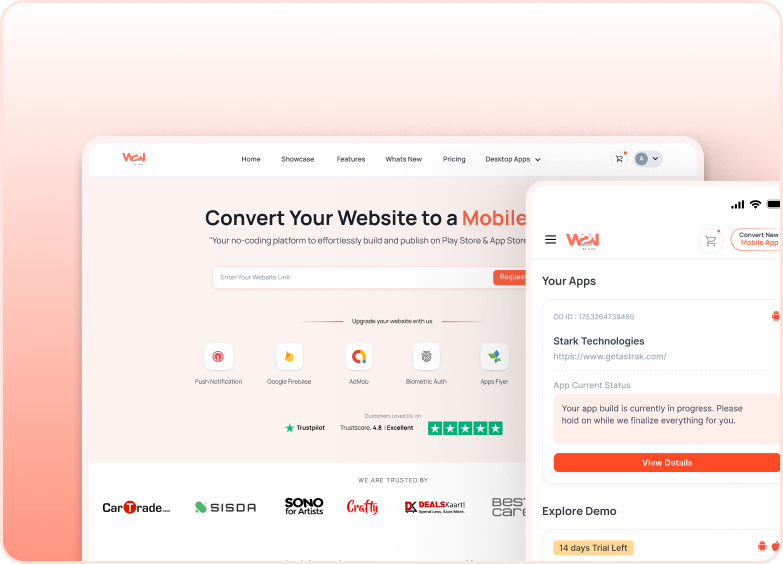Touch ID, Face ID and Biometric Authentication
This step-by-step process will help you integrate Touch ID (for iOS) and Android Fingerprint Authentication into your app, ensuring users are prompted to authenticate when they open the app. It also includes instructions to configure biometric settings and handle biometric data.
Key Features
- Integrates directly with any existing web authentication flow.
- Prompts for authentication when the user opens the app.
- Works with physical devices only.
Step-by-Step Integratation of Touch ID, Face ID and Biometric Authentication
1. Add Touch ID, Face ID and Biometric Authentication
Click on "Add" button to add Touch ID, Face ID and Biometric Authentication. Once you add, it will appear in Add-ons menu. After adding this add-on, you will see the settings option in the section.

2. Biometric Configuration
- Enable Biometric Authentication: As soon as you will click on the Settings, a pop-up will apper. Now, enable the Biometric Configuration.

As you will enable Biometric Authentication, two more settings will apper.
1. Automatically Authenticate with Biometrics on Launch: Select this option to ask users for Automatic Biometric Authentication as soon as the app opens. You can enable or disable this feature as per your requirements.
2. Allow Other Methods for Authentication: Select this option if you want to allow users to use other authentication methods in addition to biometrics.
- Call the native function from your website to initiate biometric authentication manually(adding a javascript code)
- You can also add respective domains in "White List Domains" so that users can use this feature on the listed domains.

- For integration of Biometric Authentication Function in your website, Go to the link https://docs.webtonative.com/javascript-apis/biometric-authentication (opens in a new tab).
Click on the "Save" button. Rebuild your app to apply and view the changes. This will ensure that the new secondary navigation is functional and visible in your app.




